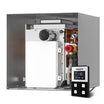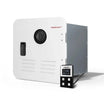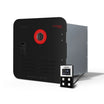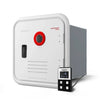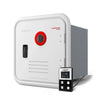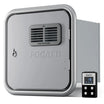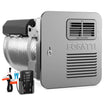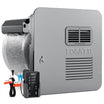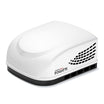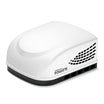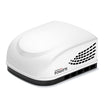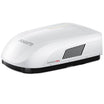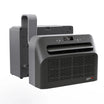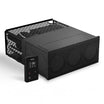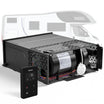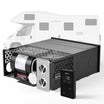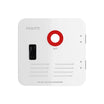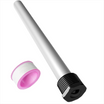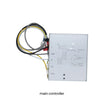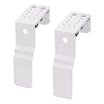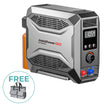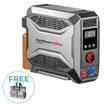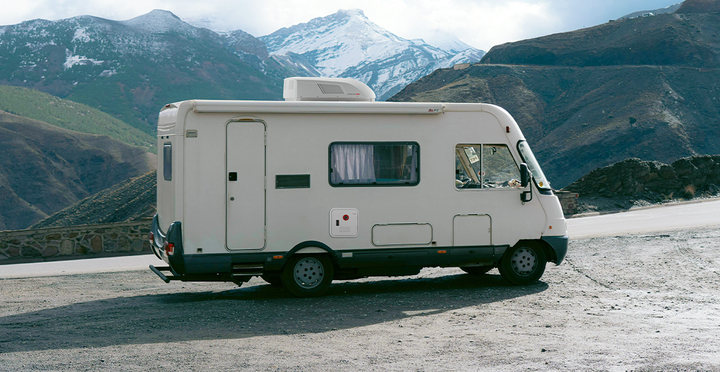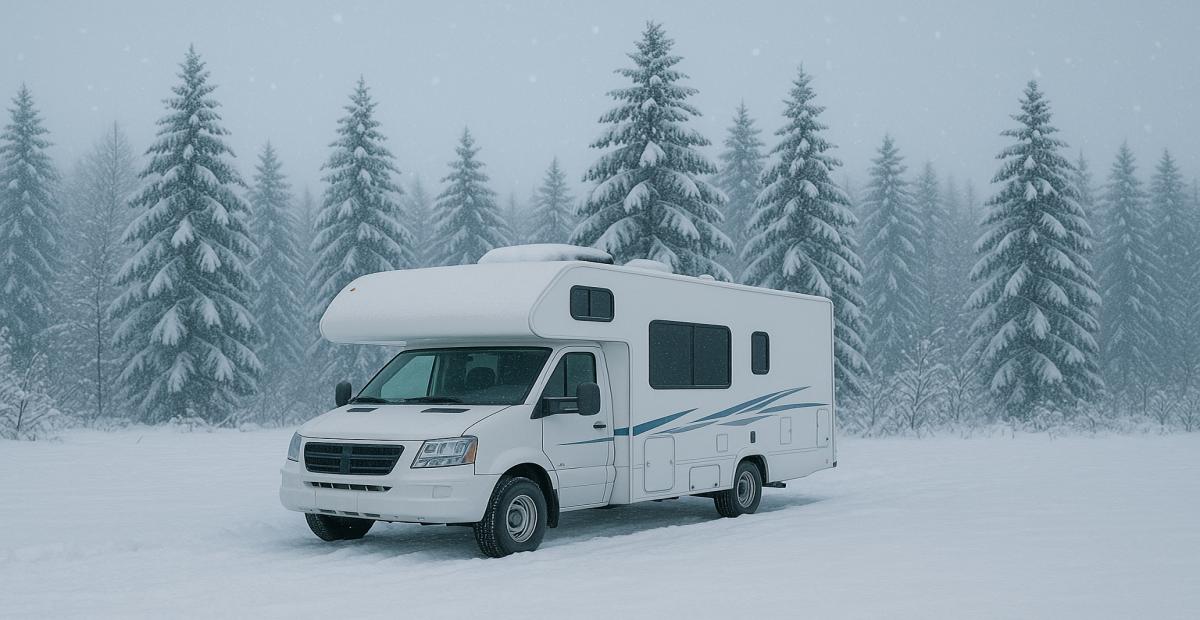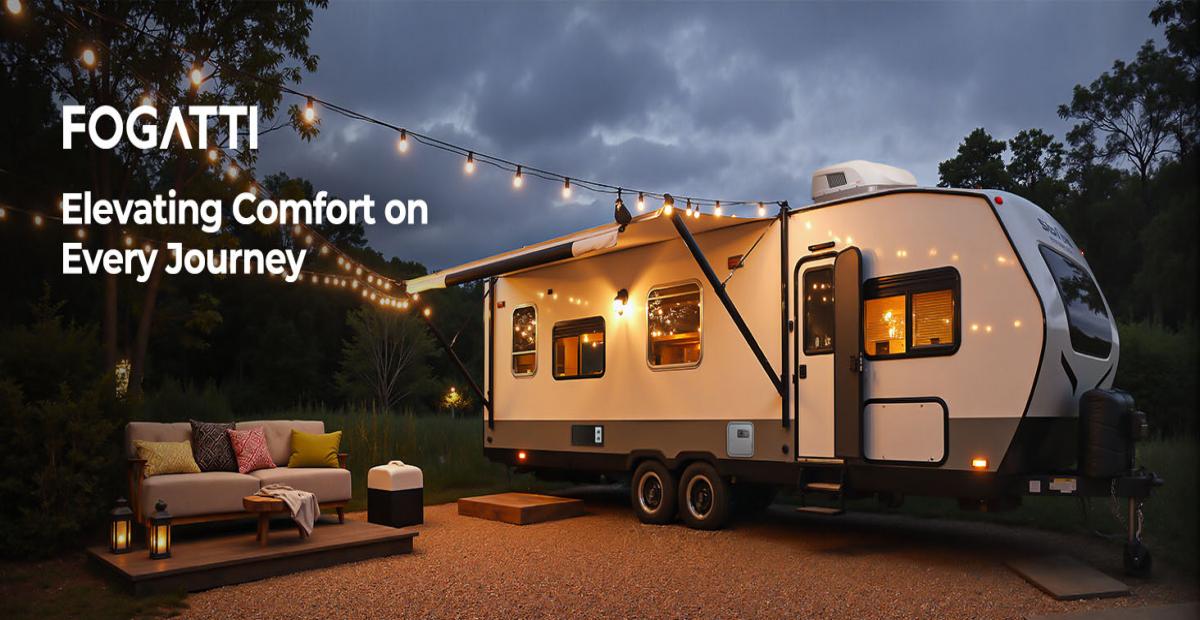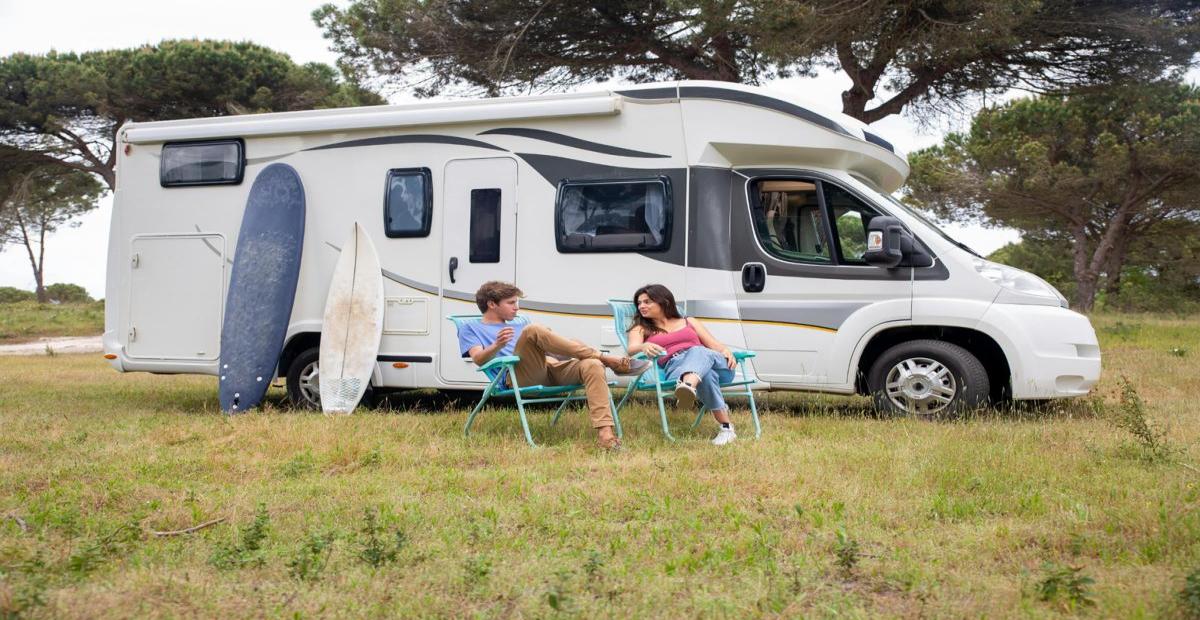The RV water heater is a crucial device in RV life, providing warm and comfortable hot water for our bathing, cooking, and cleaning needs. Just like our cars need regular maintenance, the RV water heater also requires careful attention and regular upkeep. Next, let's delve into how to scientifically and comprehensively clean and maintain the RV water heater to ensure it remains in optimal condition at all times.
The Benefits of Regularly Maintaining Your RV Water Heater
According to research data from the Recreational Vehicle Industry Association (RVIA) (FOGATTI is a member of this association), for RV water heaters that are regularly maintained, the average repair cost is reduced by 35%, and the service life is extended by 2 to 3 years. Why such significant results? Firstly, during the use of the RV water heater, minerals in the water will accumulate continuously. Over time, scale will form, leading to corrosion issues. Regular maintenance can effectively prevent these situations and avoid high subsequent repair costs. Secondly, a well-maintained water heater is more efficient. A report from the U.S. Department of Energy states that for an RV water heater that has been professionally maintained, when heating the same volume of water, the consumption of propane or electricity can be reduced by approximately 20%. For RV users who often go on long-distance trips, this can save a considerable amount of money. Finally, from an economic perspective, extending the service life of the water heater means that we don't need to replace the device for a longer time, further reducing the usage cost.
Common Problems That May Occur with Your RV Water Heater
After long-term use, the RV water heater will inevitably encounter some issues. Here are the most common problems that RV users in the United States encounte:
1. Insufficient Hot Water Supply: When you are looking forward to enjoying hot water, the water temperature is not hot enough, or there is very little hot water. This may be due to a faulty heating element, insufficient gas supply, or excessive sediment in the water heater tank that affects the heating efficiency.
2. Excessively Hot Water Temperature: Sometimes the hot water is too scalding to use. This may be a problem with the temperature controller, which is unable to accurately regulate the water temperature.
3. Water Heater Leakage: Leakage occurs at the water tank, connecting pipes, or valves. Not only does this waste water, but it may also cause damage to the interior of the RV. Common causes include aging seals and tank corrosion.
4. Strange Noises: The water heater makes banging, humming, or other strange noises during operation. This is mostly due to uneven heating of the sediment in the tank or friction between the heating element and the scale.
If you encounter these problems, don't worry. For some simple faults, such as cleaning the sediment in the tank or checking the gas pipeline connection, we can try to fix them ourselves. However, if it involves complex electrical or gas system failures, for safety reasons, it is advisable to contact a professional RV repair technician.
How Often Should You Clean and Maintain Your RV Water Heater?
The frequency of cleaning and maintaining the RV water heater mainly depends on how often you use it. If you are a full-time RV traveler and use the water heater almost every day, it is recommended to conduct a comprehensive cleaning and maintenance every 6 months. For users who only use the RV for vacations occasionally, you should still perform maintenance at least once a year. The cleaning and maintenance process is not actually that complicated. It mainly includes flushing the water tank, cleaning the burner assembly, and if there is stubborn scale on the tank wall, descaling treatment is also required. Regular maintenance is like a "check-up" for the water heater, which can promptly detect potential problems and prevent minor issues from developing into major breakdowns.
How to Clean Your RV Water Heater
When cleaning the RV water heater, prepare tools such as rubber gloves, a long-handled brush, a vacuum cleaner, and a water hose. The specific steps are as follows:
1. Turn Off the Power or Gas: For an electric water heater, turn off the power switch of the RV. If it is a gas water heater, close the gas valve. Wait for the water heater to cool completely, which usually takes 2 to 3 hours, to avoid getting burned.
2. Empty the Water Heater: Locate the drain valve at the bottom of the water heater and the safety valve at the top. First, open the drain valve, and then open the safety valve. This will allow the water in the tank to drain out faster. During the draining process, you will notice that the water flowing out may be quite turbid, which is the sediment accumulated in the tank. After emptying, use a brush to clean the sediment at the bottom of the tank, and you can also use a vacuum cleaner to suck out the small particles.
3. Clean the Anode Rod (if available): The anode rod is like a "protective shield" for the water heater tank. It is made of a metal that is more reactive than the metal of the tank, and it can react preferentially with the corrosive substances in the water, thus protecting the tank from corrosion. Most RV water heaters have an anode rod. Remove it from the tank and use a brush to carefully scrub the dirt and corrosion on its surface. After cleaning it thoroughly, reinstall it back into the tank. Generally, the anode rod needs to be replaced every 2 to 3 years.
4. Flush the Water Tank: Add 1 to 2 gallons of clean water to the tank through the water inlet. Then, open the hot water faucet and let the water flow until the water flowing out becomes clear, ensuring that there is no residual sediment or cleaning agent in the tank.
Of course, if you are using a tankless RV water heater, you can directly skip the third and fourth steps. If you want to upgrade your tanked RV water heater and reduce the complexity of maintenance steps, you can click here to view Fogatti's tankless RV water heaters: https://fogattiliving.com/collections/rv-water-heater
Seasonal Maintenance Recommendations
Due to the significant climate differences in different regions, the maintenance of the RV water heater also needs to be adjusted according to local conditions.
1. Winter Anti-Freeze (Especially Important in Northern Regions): In the cold winter, when the RV is not in use, be sure to take anti-freeze measures for the water heater. First, empty all the water in the tank, including the water in the connecting pipes. Then, use the RV-specific non-toxic antifreeze and inject it into the tank and pipes through the drain valve to ensure that all parts are filled with antifreeze. Never use automotive antifreeze because it is harmful to the human body, and if it remains, it may contaminate the water source.
2. Summer Maintenance (In Hot Southern Regions): In the hot summer, due to the frequent use of the water heater, you need to check the gas pipelines and electrical circuits more frequently to prevent problems such as aging of the wires and gas leakage caused by high temperatures. At the same time, pay attention to cleaning the burner to avoid reduced combustion efficiency and potential safety hazards caused by the accumulation of dust and debris.
Safety Precautions
When maintaining the RV water heater, safety always comes first:
1. Use a Gas Detector: When checking the gas water heater, use a professional gas detector to ensure that there is no gas leakage. If you smell gas, immediately close the gas valve, open the doors and windows of the RV for ventilation, and do not use an open flame or electrical switches.
2. Avoid Improper Operation: Do not randomly disassemble the key components of the water heater, such as the temperature controller and the safety valve. These components are crucial for the normal operation and safety of the water heater. Disassembly by non-professionals may lead to equipment damage or safety accidents.
3. Wear Protective Gear: During the cleaning and maintenance process, wear rubber gloves and safety goggles to prevent injury from cleaning agents, hot water, or sharp objects.
Professional Maintenance Recommendations
Although we can complete a lot of maintenance work ourselves, there are still some situations where professionals are needed:
- Complex Fault Repair: When the water heater has complex problems such as electrical circuit failures or gas system leaks, promptly contact a professional RV repair service.
- Regular Professional Inspection: It is recommended to conduct a professional comprehensive inspection every 3 to 5 years. Professional technicians will use professional equipment to conduct in-depth inspections of all components of the water heater, detect potential problems, and deal with them in a timely manner.
Common Errors and Misconceptions
During the process of cleaning and maintaining the RV water heater, some common errors and misconceptions need to be avoided:
- Neglecting Regular Maintenance: Some users think that since the water heater is still working, they don't need to perform regular maintenance. By the time serious problems occur, the repair cost will increase significantly, and it may even be necessary to replace the entire water heater.
- Using the Wrong Cleaning Agent: In order to remove the scale, using strong acid or strong alkali cleaning agents will seriously corrode the tank and pipes, shortening the service life of the water heater. Special RV water heater cleaning agents should be selected.
Inspection Checklist and Tool List
To facilitate everyone's maintenance, here is an inspection checklist and a tool list for you:
- Inspection Checklist: Turn off the power/gas, empty the water tank, clean the anode rod, flush the water tank, check the gas pipeline, check the safety valve, clean the burner.
- Tool List: Rubber gloves, long-handled brush, vacuum cleaner, water hose, gas detector, RV-specific antifreeze, cleaning agent.
Through the above comprehensive cleaning and maintenance guide, I believe you have mastered the key points of maintaining the RV water heater. Remember, with a little more care for the water heater, it can bring more warmth and convenience to your RV life. Start following these steps now to keep your RV water heater in the best condition!


